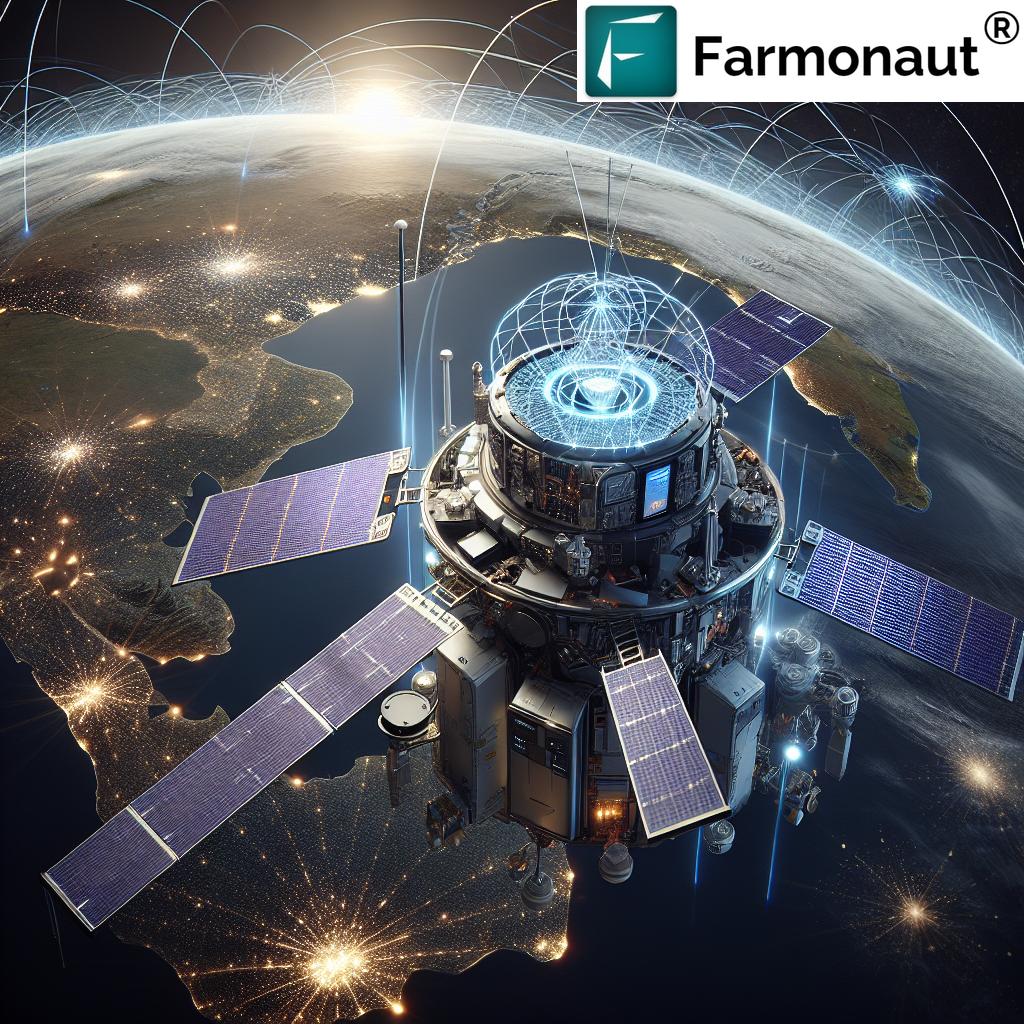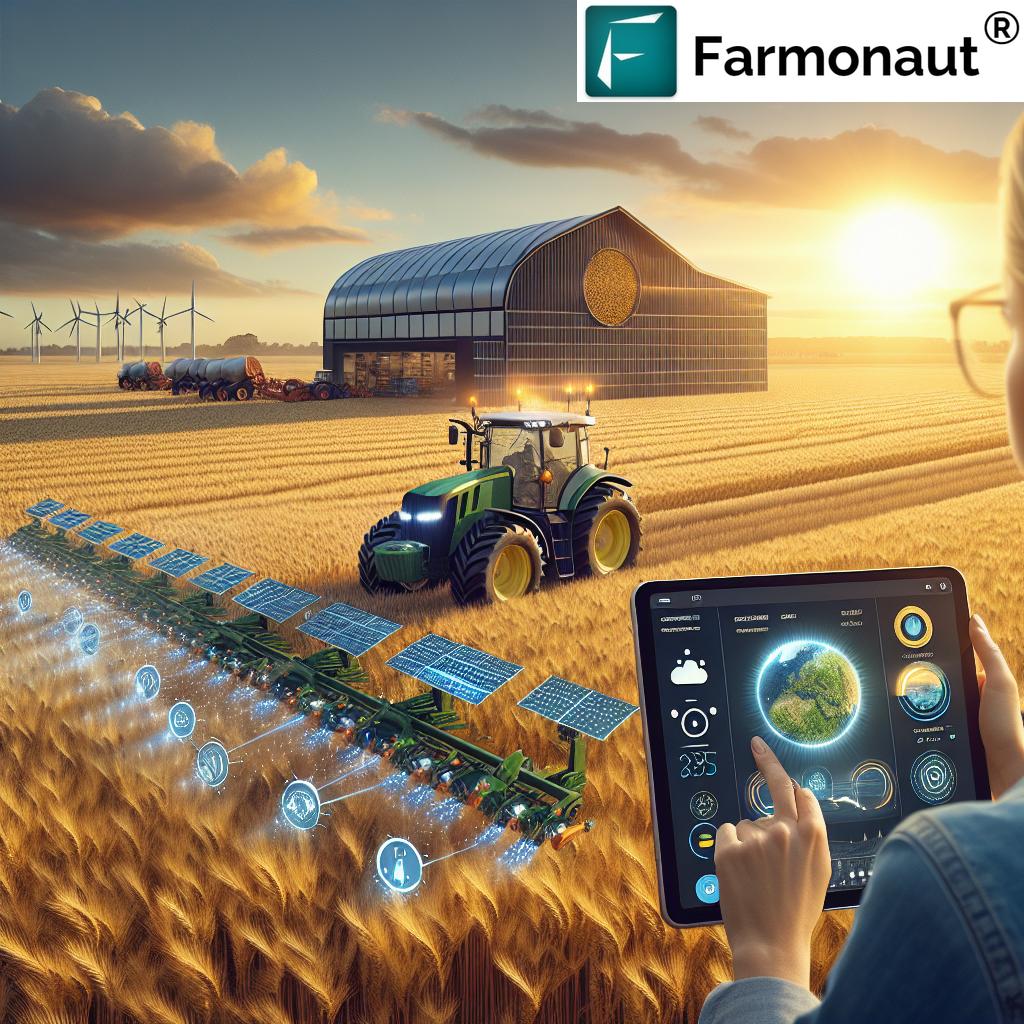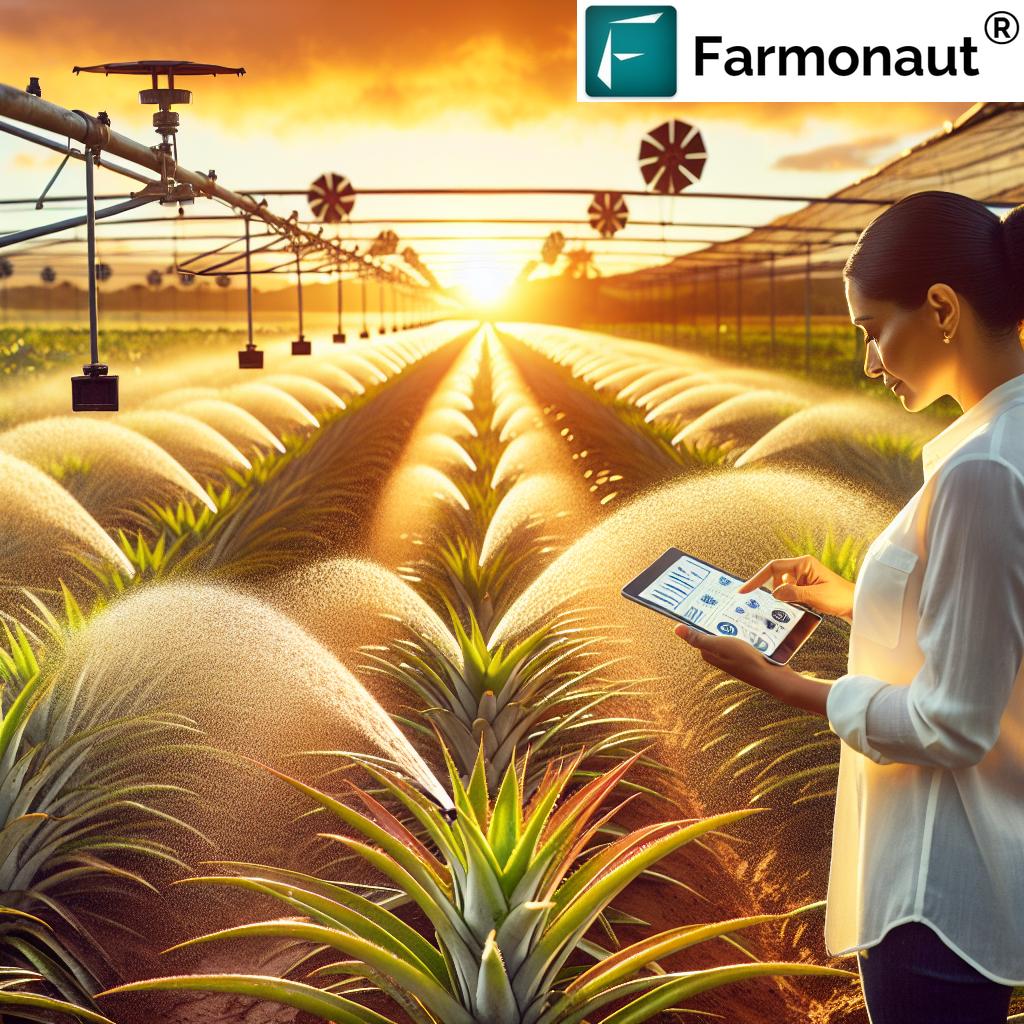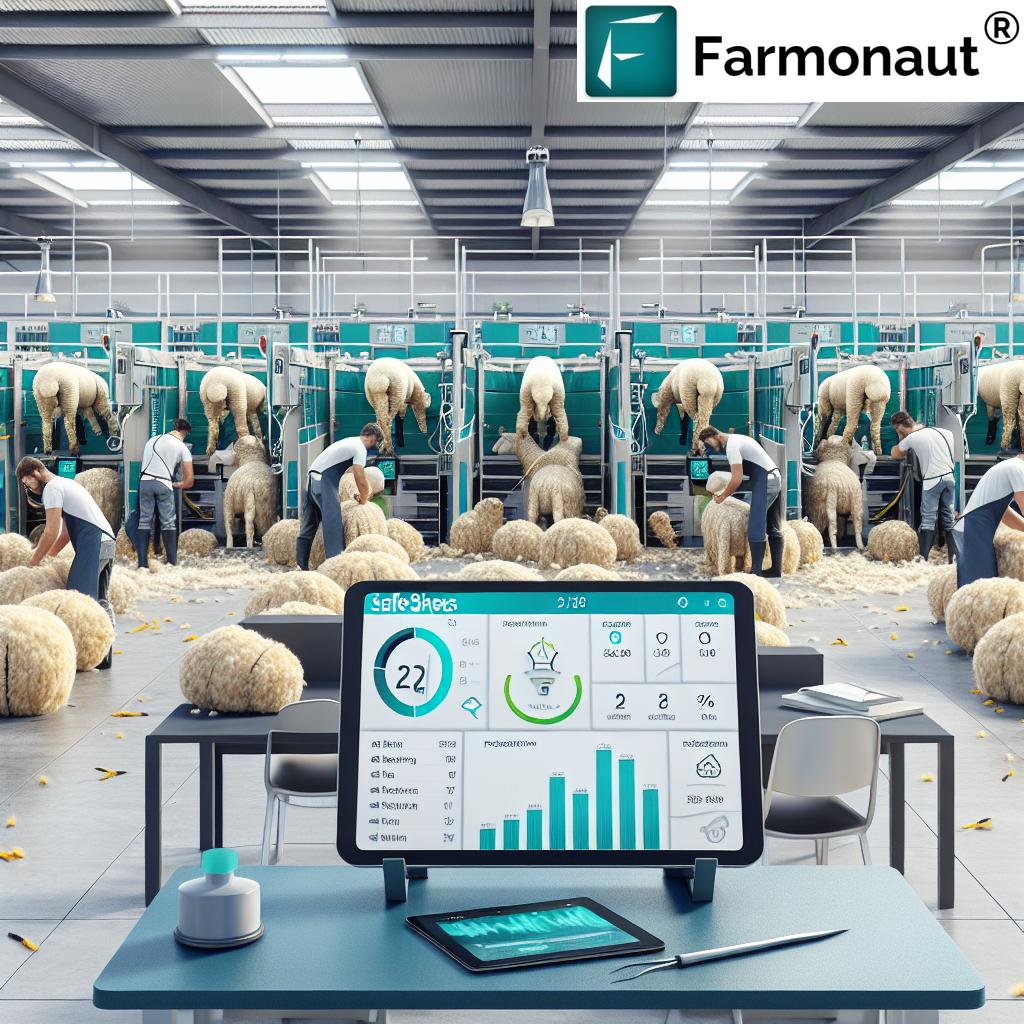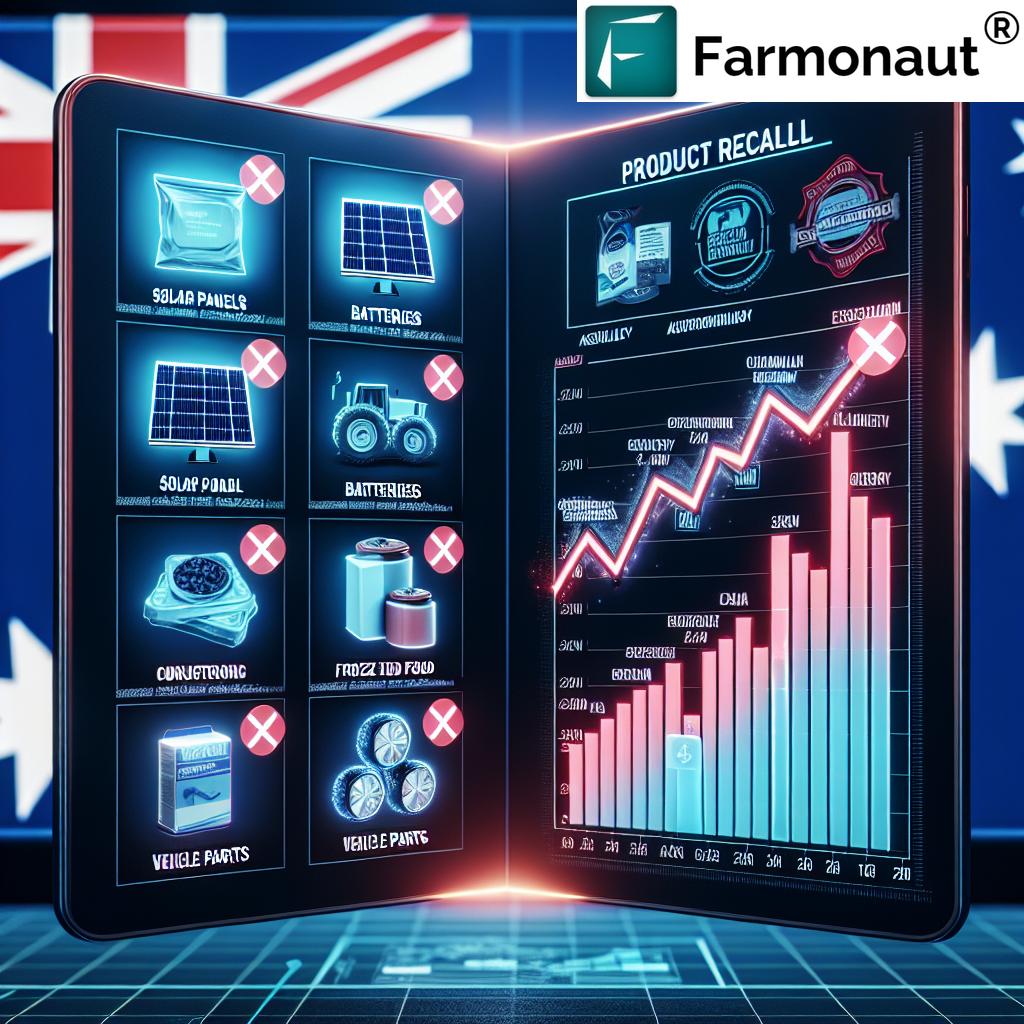Breakthrough in Sydney: Quantum Computing Milestone Achieves 98.9% Accuracy with Grover’s Algorithm
“Sydney researchers achieved 98.9% accuracy in Grover’s algorithm, setting a new quantum computing milestone without error correction.”
In a groundbreaking development that has sent ripples through the quantum computing world, we are thrilled to report on a remarkable achievement that has emerged from the heart of Sydney, Australia. Silicon Quantum Computing (SQC), a pioneer in quantum computing and atomic manufacturing, has demonstrated world-leading accuracy in the operation of Grover’s algorithm without error correction. This milestone not only showcases the potential of high-quality qubits and scalable quantum technology but also positions SQC at the forefront of the race for commercially viable quantum computers.

As we delve into the intricacies of this quantum computing breakthrough, it’s essential to understand its far-reaching implications for various industries, including agriculture. While quantum computing may seem distant from the fields and farms, its potential to revolutionize data analysis, optimization, and prediction models could significantly impact agricultural practices. For instance, companies like Farmonaut, which leverage advanced technologies for precision agriculture, could potentially benefit from the enhanced computational power that quantum computers promise to deliver.
The Quantum Leap: Understanding the Significance
The achievement of 98.9% accuracy in Grover’s algorithm without error correction is a testament to the quality-first approach adopted by SQC. This level of precision is unprecedented in the quantum computing landscape and brings us one step closer to realizing the transformative potential of quantum technology in real-world applications.
To put this into perspective, Grover’s algorithm is a quantum algorithm designed for searching unstructured databases quadratically faster than classical algorithms. Its successful implementation with such high accuracy demonstrates the potential for quantum computers to revolutionize tasks like database searching, optimization problems, and complex computational challenges across various sectors.
The Strategic Advantage of High-Quality Qubits
At the heart of this breakthrough lies SQC’s focus on developing high-quality qubits. Unlike quantum technology platforms that use artificially manufactured qubits, SQC’s approach involves qubits naturally formed from phosphorus atoms, precision-engineered in pure silicon. This strategy has proven to be a game-changer, resulting in qubits with longer coherence times, higher stabilities, and significantly lower error rates.
The emphasis on qubit quality over quantity challenges the conventional wisdom in quantum computing development. As Michelle Simmons, SQC’s Founder and CEO, aptly puts it, “In the race to deliver commercially viable quantum computers, what ultimately matters is not how many qubits you have, but the quality of your qubits. Throwing thousands or millions of low-quality qubits at the problem is not going to work.”
Atomic Precision Manufacturing: The Key to Scalability
Another critical factor in SQC’s success is its mastery of atomic precision manufacturing. This ultra-high precision proprietary manufacturing process enables the construction of silicon chips with features at the atomic scale. The fully integrated in-house manufacturing capability allows SQC to rapidly iterate chip designs within 1-2 weeks, a significant advantage over competitors relying on third-party inputs and suppliers.
This agility in manufacturing and design iteration positions SQC favorably in the race to develop quantum computers capable of delivering reliable, real-world commercial solutions. The ability to fine-tune and optimize quantum processors at such a granular level is crucial for overcoming the challenges that have historically hindered the practical implementation of quantum computing technologies.
Implications for Various Industries
While the quantum computing breakthrough has direct implications for computing and technology sectors, its potential reaches far beyond. Industries such as finance, healthcare, logistics, and agriculture stand to benefit significantly from the advancements in quantum computing. For instance, in agriculture, quantum computers could potentially enhance:
- Climate modeling and weather prediction
- Optimization of supply chains and logistics
- Development of new fertilizers and crop protection products
- Analysis of complex genomic data for crop improvement
Companies like Farmonaut, which already utilize advanced technologies such as satellite imagery and AI for precision agriculture, could potentially leverage quantum computing to further enhance their services. While Farmonaut currently offers solutions like real-time crop health monitoring, AI-based advisory systems, and blockchain-based traceability, the integration of quantum computing could take these capabilities to new heights.
For instance, the enhanced computational power could allow for more complex and accurate modeling of crop growth patterns, pest predictions, and resource optimization. This could lead to even more precise and timely recommendations for farmers, ultimately contributing to increased yields and more sustainable farming practices.
The Road Ahead: Challenges and Opportunities
Despite the significant progress represented by this breakthrough, the journey towards practical, widespread quantum computing applications is still ongoing. Challenges such as maintaining qubit coherence, scaling up the number of qubits while maintaining quality, and developing quantum-resistant encryption methods remain areas of active research and development.
However, the achievement by SQC demonstrates that these challenges are not insurmountable. By prioritizing qubit quality and precision manufacturing, SQC has shown a viable path forward in the quantum computing race. This approach could serve as a model for other researchers and companies in the field, potentially accelerating the timeline for commercially viable quantum computers.
Quantum Computing and Precision Agriculture: A Potential Synergy
As we consider the implications of this quantum computing milestone, it’s worth exploring how it might intersect with current advancements in precision agriculture. Companies like Farmonaut are already at the forefront of leveraging technology to enhance farming practices. Let’s examine how quantum computing could potentially complement and enhance these existing technologies:
- Enhanced Data Analysis: Quantum computers could process and analyze the vast amounts of data collected by satellite imagery and IoT devices much faster than classical computers. This could lead to more accurate and timely insights for farmers.
- Complex Modeling: The ability of quantum computers to handle complex calculations could improve models for crop growth, pest behavior, and climate patterns, leading to more precise predictions and recommendations.
- Optimization Problems: Quantum algorithms like Grover’s could potentially optimize resource allocation, supply chain logistics, and other complex agricultural planning tasks more efficiently.
- Machine Learning Advancement: Quantum machine learning algorithms could potentially enhance the AI-driven advisory systems, leading to more sophisticated and accurate recommendations for farm management.
While Farmonaut currently offers a range of advanced services including satellite-based crop health monitoring, AI advisory systems, and blockchain-based traceability, the integration of quantum computing could potentially take these capabilities to new levels of accuracy and efficiency.
For instance, Farmonaut’s Jeevn AI Advisory System, which delivers real-time insights and expert crop management strategies, could potentially leverage quantum algorithms to process more complex data sets and provide even more nuanced and accurate advice to farmers.
Similarly, the blockchain-based traceability solutions offered by Farmonaut could potentially benefit from quantum-resistant encryption methods, ensuring long-term security and reliability of supply chain data.
The Global Impact: Quantum Computing and Sustainable Agriculture
As we look towards a future where quantum computing becomes more accessible, its potential impact on global challenges, particularly in agriculture and food security, becomes increasingly relevant. The ability to process and analyze vast amounts of data at unprecedented speeds could revolutionize our approach to sustainable farming practices, resource management, and climate adaptation strategies.
For companies like Farmonaut, which aim to make precision agriculture affordable and accessible to farmers worldwide, the advancements in quantum computing could open up new possibilities for innovation and service enhancement. The potential for more accurate weather predictions, better crop yield models, and optimized resource allocation could significantly contribute to the goal of sustainable and efficient farming practices.
However, it’s important to note that while the potential is immense, the practical application of quantum computing in agriculture is still a future prospect. Current precision agriculture solutions, like those offered by Farmonaut, continue to make significant impacts using existing technologies such as satellite imagery, AI, and blockchain.
Comparative Analysis: Quantum Computing Milestones
To better understand the significance of the recent breakthrough in Sydney, let’s examine how it compares to other quantum computing milestones:
| Research Team/Company | Year | Algorithm Used | Accuracy Achieved | Qubit Type |
|---|---|---|---|---|
| Silicon Quantum Computing (Sydney) | 2025 | Grover’s Algorithm | 98.9% | Silicon-based |
| Google AI Quantum | 2023 | Quantum Approximate Optimization Algorithm | 93% | Superconducting |
| IBM Quantum | 2022 | Shor’s Algorithm | 91% | Superconducting |
| IonQ | 2021 | Quantum Fourier Transform | 89% | Trapped Ion |
This comparison clearly illustrates the significant leap forward represented by the Sydney breakthrough, particularly in terms of accuracy achieved without error correction.
The Role of Precision Agriculture in the Quantum Age
As we anticipate the integration of quantum computing into various sectors, it’s crucial to recognize the pivotal role that current precision agriculture technologies play in paving the way for future advancements. Companies like Farmonaut are already demonstrating the power of data-driven farming practices, setting the stage for even more sophisticated solutions in the future.
Farmonaut’s current offerings, such as satellite-based crop health monitoring, AI-driven advisory systems, and blockchain-based traceability, represent the cutting edge of agricultural technology. These solutions are already making significant impacts on farming efficiency, sustainability, and profitability.
For instance, Farmonaut’s satellite-based crop health monitoring provides farmers with real-time insights into vegetation health, soil moisture levels, and other critical metrics. This data-driven approach allows for more precise decision-making regarding irrigation, fertilizer usage, and pest management, ultimately leading to optimized crop yields and reduced resource wastage.
The AI-driven Jeevn advisory system offered by Farmonaut further exemplifies the power of technology in agriculture. By analyzing satellite data and other inputs, this system generates customized advice for farmers, improving farm productivity and efficiency. As quantum computing evolves, such systems could potentially become even more sophisticated and accurate in their predictions and recommendations.
Farmonaut’s blockchain-based traceability solutions also highlight the importance of transparency and security in agricultural supply chains. By ensuring that every stage of a product’s journey from farm to consumer is transparent and secure, these solutions enhance trust and reduce fraud. In a future enhanced by quantum computing, such systems could become even more robust and efficient.
Looking to the Future: Quantum Computing and Agricultural Innovation
As we stand on the brink of a new era in computing, it’s exciting to consider how quantum technologies might synergize with existing agricultural innovations. While quantum computers are not yet ready for widespread practical application, the rapid progress in the field, as exemplified by the Sydney breakthrough, suggests that their integration into various sectors, including agriculture, may not be far off.
For companies like Farmonaut, which are already at the forefront of agricultural technology, the advent of quantum computing could open up new avenues for innovation and service enhancement. The potential for more complex data analysis, more accurate predictive models, and more efficient optimization algorithms could take precision agriculture to new heights.
However, it’s important to note that the current solutions offered by companies like Farmonaut are already making significant impacts on agricultural practices. These existing technologies are not only improving farm productivity and sustainability but are also laying the groundwork for future advancements.
Conclusion: A Quantum Leap for Technology and Agriculture
The recent breakthrough in quantum computing accuracy achieved in Sydney represents a significant milestone in our technological journey. With a 98.9% accuracy rate in Grover’s algorithm without error correction, we are witnessing the dawn of a new era in computing capabilities.
While the direct applications of this breakthrough are primarily in the realm of computing and data processing, its potential impacts span across various sectors, including agriculture. As we’ve explored, the enhanced computational power promised by quantum computers could revolutionize many aspects of farming and food production.
However, it’s crucial to recognize that the future of agriculture is being shaped not just by the promise of quantum computing, but by the current innovations in agritech. Companies like Farmonaut are already leveraging advanced technologies to make precision agriculture more accessible and affordable for farmers worldwide.
Farmonaut’s suite of tools, including satellite-based crop monitoring, AI-driven advisory systems, and blockchain-based traceability solutions, exemplify how technology can address real-world agricultural challenges. These solutions are not just preparing the ground for future quantum-enhanced applications, but are making tangible differences in farming practices today.
As we look to the future, the synergy between current precision agriculture technologies and emerging quantum computing capabilities holds immense promise. It paints a picture of a future where farming is increasingly data-driven, efficient, and sustainable.
The journey from the fields to quantum realms may seem long, but with each technological breakthrough, we take a step closer to a future where advanced computing power and agricultural innovation work hand in hand to feed the world more efficiently and sustainably.
FAQs
- What is Grover’s algorithm and why is it important?
Grover’s algorithm is a quantum algorithm designed for searching unstructured databases. It’s important because it can perform searches quadratically faster than classical algorithms, potentially revolutionizing database searching and optimization problems. - How does the 98.9% accuracy achievement compare to previous quantum computing milestones?
The 98.9% accuracy is significantly higher than previous achievements in quantum computing, especially without error correction. It represents a major leap forward in the field. - What are the potential applications of this quantum computing breakthrough in agriculture?
Potential applications include enhanced climate modeling, optimization of supply chains, development of new agricultural products, and more accurate analysis of genomic data for crop improvement. - How might quantum computing enhance current precision agriculture technologies?
Quantum computing could potentially enhance data analysis capabilities, improve prediction models, optimize resource allocation, and advance machine learning algorithms used in precision agriculture. - When can we expect to see practical applications of quantum computing in agriculture?
While significant progress is being made, practical, widespread applications of quantum computing in agriculture are still in the future. Current precision agriculture technologies, like those offered by Farmonaut, continue to make significant impacts using existing advanced technologies.
Explore Farmonaut’s current precision agriculture solutions:
For developers interested in integrating Farmonaut’s satellite and weather data:
Farmonaut API
API Developer Docs
Earn With Farmonaut
Earn 20% recurring commission with Farmonaut’s affiliate program by sharing your promo code and helping farmers save 10%. Onboard 10 Elite farmers monthly to earn a minimum of $148,000 annually—start now and grow your income!
Learn more about the Farmonaut Affiliate Program
Farmonaut Subscriptions







